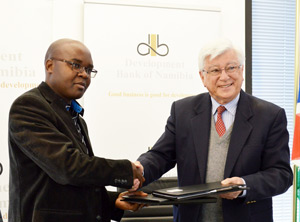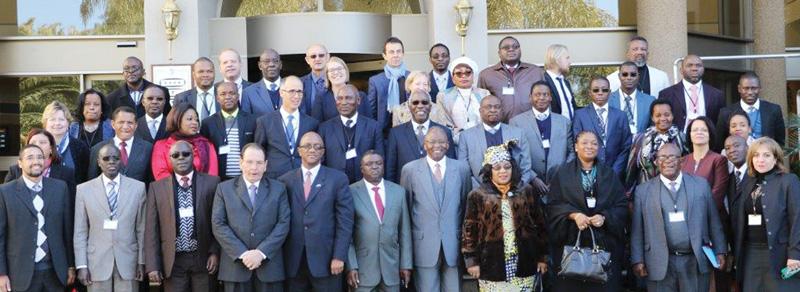
SMEs get financial boost

Even more DBN finance for Small and Medium Enterprises. DBN recently signed an N$50 million capitalisation agreement with The Namibia Procurement Fund (NamPro), for the Fund to provide bridging finance to SMEs with contracts from larger corporates, parastatals and ministries. Above, DBN CEO Martin Inkumbi and Derek Wright, Chairperson of the NamPro Board of Trustees, exchange cosigned copies of the agreement.
Talking about the Bank’s confidence in the Fund to deliver on the DBN mandate, Inkumbi said that NPF’s governance paralleled that of DBN operationally and in the form of two oversight sub-committees, an Audit, Risk and Compliance Sub-Committee, and an Investment Sub-Committee. He also pointed out that a Conflict Resolutions Sub-Committee was also in place to deal with and manage disputes. “This gives us confidence in the sustainability of NPF, as well as our ability to sustain medium-tem cooperation with the Fund,” Inkumbi said. Asked about the need for medium-term cooperation, Inkumbi said the nature of finance should be matched to the duration of contracts, which would entail short to medium-term delivery on the part of SMEs, so the capital amount to NPF is provided on a medium-term basis. He said that NPF had been identified as a potential agency in the past, and that the Bank had previous experience with key individuals involved in operating the fund. This, he said, was a further basis for the bank’s confidence in fund. The Namibia Procurement Fund was established with initial funding of N$160 million from GIPF. It’s capitalisation has subsequently grown to N$300 million, and it has provided N$400 million in facilities to SMEs.












































